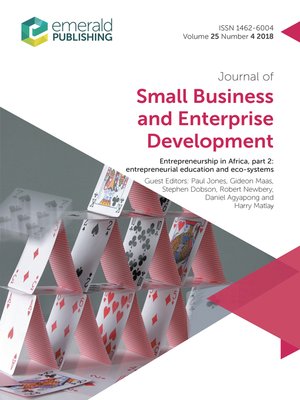Journal of Small Business and Enterprise Development, Volume 25, Issue 4
ebook ∣ Entrepreneurship in Africa, Part 2: Entrepreneurial Education and eco-Systems · Journal of Small Business and Enterprise Development
By Harry Matlay

Sign up to save your library
With an OverDrive account, you can save your favorite libraries for at-a-glance information about availability. Find out more about OverDrive accounts.
Find this title in Libby, the library reading app by OverDrive.



Search for a digital library with this title
Title found at these libraries:
| Library Name | Distance |
|---|---|
| Loading... |
This ebook represents part of the special issue exploring Entrepreneurial dynamics in Africa. The first ebook explored entrepreneurial behaviour and small business practice (Jones et al, 2018). This ebook presents eight papers examining entrepreneurial and eco-systems issues in an African context. The growth of effective entrepreneurship in Africa is largely dependent on entrepreneurship education being able to develop effective curriculum to encourage entrepreneurial behaviour and attitudes (Kabongo and Okpara, 2018). There is also recognition that existing University provision in African Universities requires a mindset change to alleviate societal problems such as graduate unemployment (Baldry, 2016). Existing entrepreneurship education provision and curriculum in Africa remains at the nascent stage but there is increased recognition regarding the need to enhance pedagogy, curriculum design (Louw et al., 2003) and institutional culture towards entrepreneurial careers (Jones et al., 2013). In addition, the importance of entrepreneurial eco-systems, have gained traction in developing world contexts. This has included issues such as cross University entrepreneurship education provision, development of eco-systems to support business start-ups and provision of seed corn funding (Mass and Jones, 2017). The cultural and regional diversity of Africa plus the inherent infrastructure limitations means that entrepreneurship education provision is challenging and nascent in my cases. The studies offered here provide insights into best practice and emergent behaviour.







